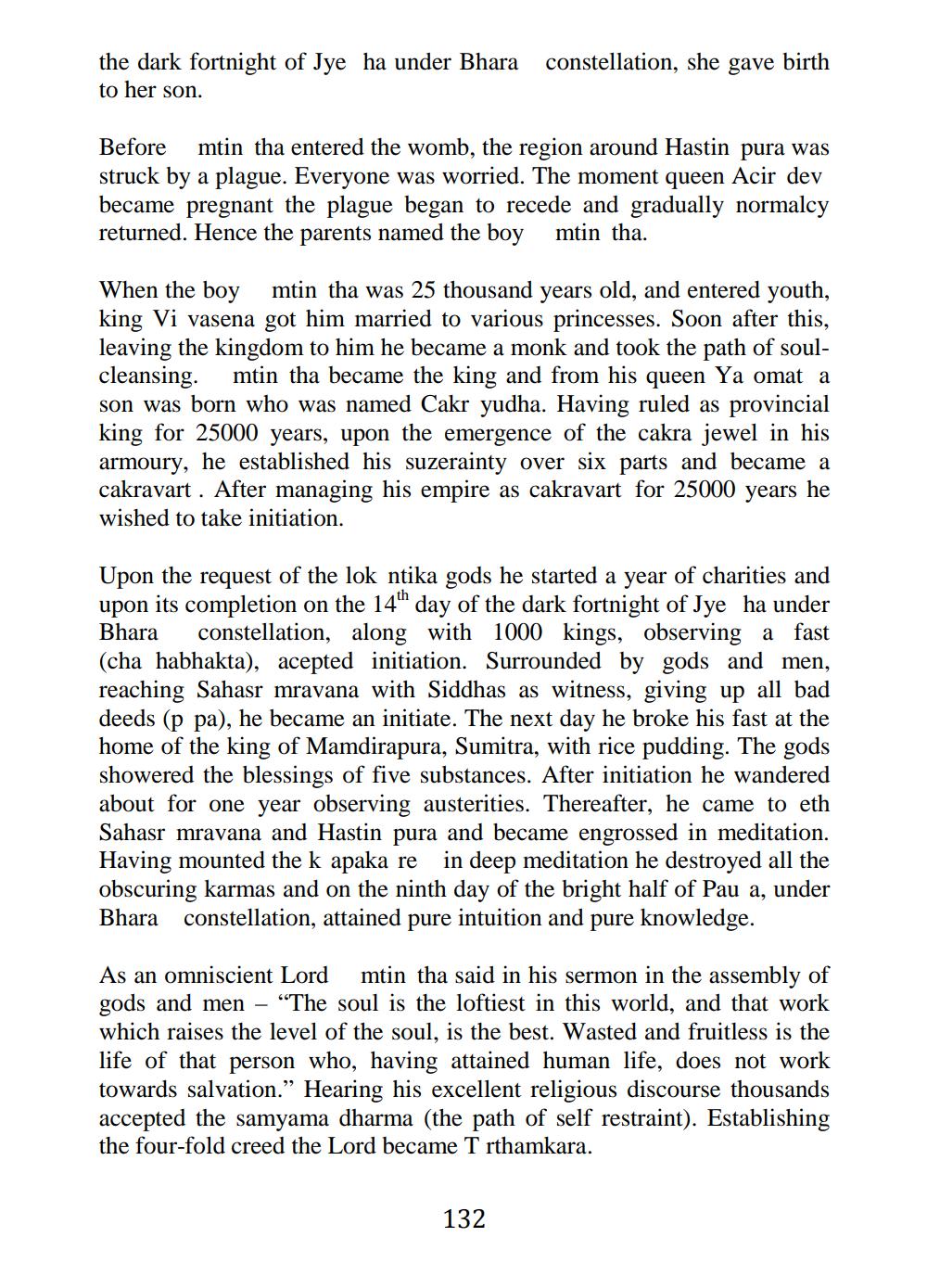________________
the dark fortnight of Jye ha under Bhara to her son.
constellation, she gave birth
Before mtin tha entered the womb, the region around Hastin pura was struck by a plague. Everyone was worried. The moment queen Acir dev became pregnant the plague began to recede and gradually normalcy returned. Hence the parents named the boy mtin tha.
When the boy mtin tha was 25 thousand years old, and entered youth, king Vi vasena got him married to various princesses. Soon after this, leaving the kingdom to him he became a monk and took the path of soulcleansing. mtin tha became the king and from his queen Ya omat a son was born who was named Cakr yudha. Having ruled as provincial king for 25000 years, upon the emergence of the cakra jewel in his armoury, he established his suzerainty over six parts and became a cakravart. After managing his empire as cakravart for 25000 years he wished to take initiation.
Upon the request of the lok ntika gods he started a year of charities and upon its completion on the 14th day of the dark fortnight of Jye ha under Bhara constellation, along with 1000 kings, observing a fast (cha habhakta), acepted initiation. Surrounded by gods and men, reaching Sahasr mravana with Siddhas as witness, giving up all bad deeds (p pa), he became an initiate. The next day he broke his fast at the home of the king of Mamdirapura, Sumitra, with rice pudding. The gods showered the blessings of five substances. After initiation he wandered about for one year observing austerities. Thereafter, he came to eth Sahasr mravana and Hastin pura and became engrossed in meditation. Having mounted the k apaka re in deep meditation he destroyed all the obscuring karmas and on the ninth day of the bright half of Pau a, under Bhara constellation, attained pure intuition and pure knowledge.
As an omniscient Lord mtin tha said in his sermon in the assembly of gods and men - "The soul is the loftiest in this world, and that work which raises the level of the soul, is the best. Wasted and fruitless is the life of that person who, having attained human life, does not work towards salvation." Hearing his excellent religious discourse thousands accepted the samyama dharma (the path of self restraint). Establishing the four-fold creed the Lord became T rthamkara.
132




